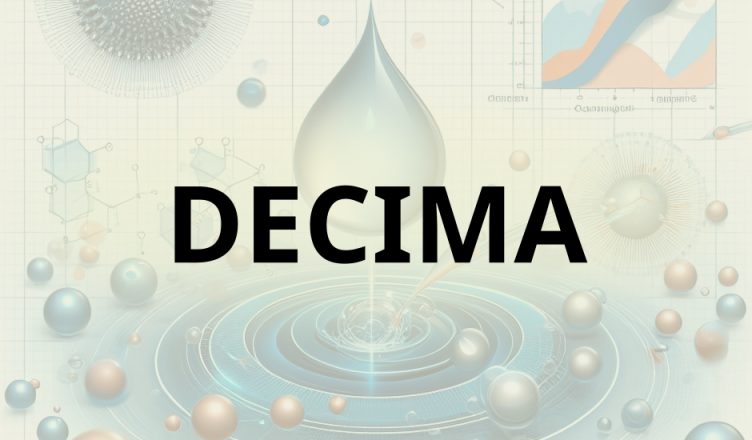DECIMA project aims at developing computational models for assisting industrial professionals in the area of microfluidic-based digital manufacturing. Such fabrication plays an important role in the miniaturization of multiple devices ranging from electronics to biological and pharmaceutical applications as it allows depositing a thin layer of material following strictly defined pattern. The rapid growth of the corresponding markets justifies the importance of studying, understanding and controlling processes faced in microfluidics-based manufacturing and, consequently, explains the necessity of developing reliable models and tools for the predictive analysis of such processes.
From the practical point of view, the main challenge in the above-mentioned field consists in finding a way to achieve maximum printing precision while at the same time minimizing the expenditure of printing material (“ink” in the most general sense). Furthermore, broadening the application fields requires developing new “engineered inks” and/or re-designing the manufacturing set-up to comply with the desired functionalities. In short, the question is: how should the materials, manufacturing set-up and operation parameters be adjusted to get the best quality product at highest speed and lowest cost.
To face this demand, DECIMA aims at developing a means for virtual analysis of the microfluidic-based processes allowing for varying and testing the impact of multiple printing parameters. This will facilitate process design improvements by providing insights into the relationship among the ink and nozzle properties, the droplet generation mechanism and the final product characteristics, among other. Overall, DECIMA will establish a computational framework facilitating analysis of inkjet printing processes with the aim of assisting industrial specialists and engineers in the development of complex application-specific set-ups and inks and defining optimal operating regimes of the printing device. Therefore, it is evident that despite having a strong fundamental component (developing models for complex multiphysics phenomena, establishing high-performance computational algorithms for solving non-linear coupled problems), DECIMA proposal classifies as “applied research” with a clear practical orientation.
DECIMA

